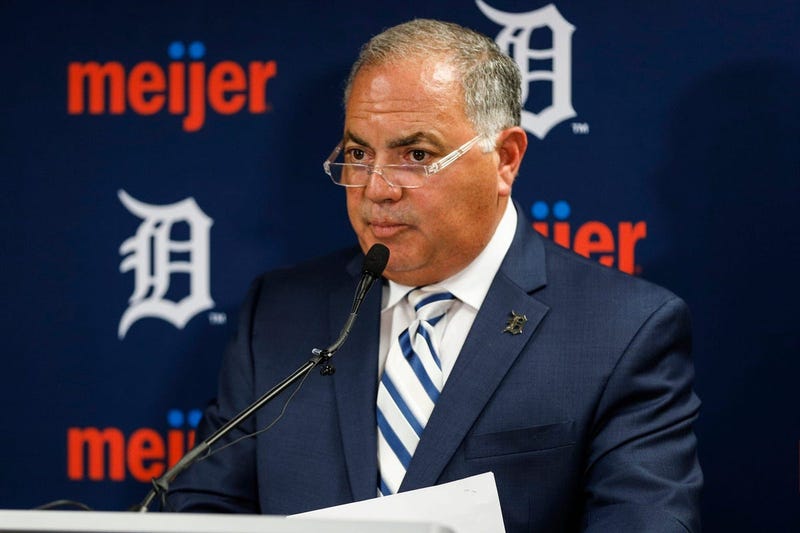
It wasn't so much the quality of the prospects the Tigers received for Shane Greene and Nicholas Castellanos that raised questions. Truth be told, the return in both cases seemed fair.
It was the fact that three of those four prospects are pitchers.
"I understand it 100 percent," Avila told the Jamie and Stoney Show on 97.1 The Ticket. "Our priority actually, we went out to try and acquire as many position players or bats as possible. But we were limited in what we could do based on what we had to trade."
Neither Greene nor Castellanos was worth a premium bat. So instead of fishing for need, the Tigers took the best talent they could get.
"At the end of the day, you'd rather take a pitcher that’s a prospect than a position player or a hitter that you don't feel is a prospect or is a much lesser prospect. You have to make the decision to get the player that you feel has the best chance to get to the big leagues and help you there," Avila said.
Avila said Wednesday that prospect-for-prospect trades are "absolutely" an option.
"As a matter of fact, we’ve kicked some of those ideas around already. That is a very viable option and a possibility," he said.
"Having a good young stable of pitchers in your system is obviously a good place to be, because you can deal from a situation where you can keep the guys you want for your rotation and bullpen, and then make your team better with those kind of trades as you move forward," said Avila. "Those are good options to have."
Working in the Tigers' favor is the fact that starting pitchers, particularly those under team control, are the most valuable commodity in baseball. Just look how many contenders were searching for starters at the deadline, said Avila.
"The position that is really in most need of all major league clubs, is pitching. There’s a bigger shortage of starting pitching than anything else in baseball," Avila said. "I’m not saying we’re cornering the market in starting pitching, because you never know how these things turn out, but starting pitching right now is very important because there’s a shortage of it, and obviously that for us is a strength.
"Hitters, they’re difficult to develop and they’re difficult to really scout, so that’s a challenge for us. We feel we have some guys in the minor leagues, but at the end of the day if we have to go out there and acquire some hitters, that’s what we're going to do."
That could also happen on the free agent market. Avila has made it clear the Tigers intend to start spending again when the team is in position to win, likely beginning in the 2020-21 offseason. That's when Jordan Zimmermann's $25 million salary comes off the books, as well as the rest of the money the Tigers owe the Rangers as part of the Prince Fielder-Ian Kinsler trade ($7 million both this year and next).
"Once all those things are off the books and we get some of the nucleus of these (prospects) up here, wherever we fall short on completing that picture, that’s when you have to go out in free agency and say, okay, we need a couple of big bats," said Avila.
He confirmed Tigers president and CEO Chris Ilitch is prepared to fork over the necessary money.
"That's what we’ve been talking about. He’s assured me when the times comes," said Avila. "Now, I am going to tell you this. I’m not a big fan of going out there and signing a guy for $300 million, because I've seen the good, the bad and the ugly of that. You have to be very careful. We will be involved in that process when the time comes. That’s when you're going to say, okay, this is what we need to do to complete the club."
